By Leah Chiappino
The Smithtown Central School District 2023-24 proposed budget of $280,642,272, is an increase of 4.8% from this year’s budget of $267,786,882 with a proposed tax levy of 2.83% which is within the district’s allowable limit.
There are three seats open on the board, with incumbent Matthew Gribbin as well as challengers Vlad Pean and Nicholas De Bello running on one ticket, and incumbent John Savoretti along with Elena Guttieri and Kevin Craine on another. They are competing for three-year terms from July 1 through June 30, 2026. Trustee Jerry Martusciello is not seeking reelection.
The school budget vote and election will be held Tuesday, May 16, from 6 a.m. to 9 p.m. For polling places, visit the district website at www.smithtown.k12.ny.us and use the “Budget Information” tab.
The candidates discussed the issues at a meet-the-candidates night May 4 moderated by the Suffolk PTA.
 Kevin Craine
Kevin Craine
Craine is a sixth-grade teacher at Lloyd Harbor Elementary School in the Cold Spring Harbor school district, and father of three children who attend St. James Elementary. He has also served as a youth sports coach, emergency medical technician and PTA volunteer.
According to his biography, he has taught at the elementary, middle and high school levels, and holds a school district administrative certificate from Stony Brook University. A Smithtown graduate himself, he earned a Bachelor of Science degree in biology/education from SUNY Geneseo and a Master of Science in liberal studies/coaching from SBU.
“While I am very proud of all these accomplishments, it all pales in comparison to the pride that I have for this community,” he said.
If elected, he pledged to make his constituents’ voices heard and feel as though they matter through “increased transparency, administrative accountability and collaboration.”
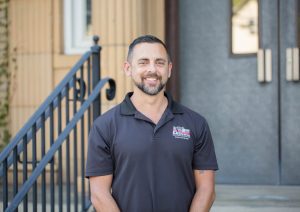 Nicholas De Bello
Nicholas De Bello
De Bello said his father was a social studies teacher at Nesaquake Middle School and Smithtown High School East, and his mother was a social worker for the Sachem school district.
“I was growing up with that inspiration from my parents about the value of schools and how educators can make first-hand differences in the lives of children,” he said.
A former caseworker for Suffolk County Department of Social Services, he is currently a vice president for the Association of Municipal Employees. He noted that several school employees, such as crossing guards and early intervention specialists, are members of the union.
He pledged to fight for small class sizes if elected.
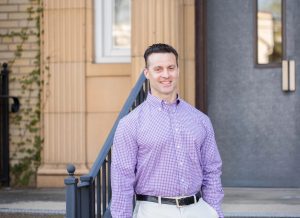 Matthew Gribbin
Matthew Gribbin
Gribbin, the current board president and a gym teacher in the Half Hollow Hills school district, graduated from The University of Maine in 2000 with a bachelor’s degree in kinesiology and physical education. He then earned a M.S. in educational technology from Long Island University. Gribbin’s three children attend Smithtown schools, and he said it is important for him and his family to give back.
“My wife and I love raising our children in this great community,” he said. “There’s so much to offer. With that comes responsibility. We feel that it’s important to be active contributors to make this community and district what it is.”
As such, Gribbin serves as a soccer coach with the Smithtown Kickers, basketball coach with St. Patrick’s R.C. Church of Smithtown, has coached lacrosse and baseball, and also assists with PTA events. He has previously served as a board member and division coordinator with the Kickers.
Gribbin has frequently sparred with fellow trustees Stacy Ann Murphy, Karen Wontrobski-Ricciardi and Savoretti.
A particularly contentious moment occurred at the Oct. 25 meeting, when Wontrobski-Ricciardi questioned the athletic placement process which allows skilled middle school athletes to participate at the high school level. At the same time, trustee Michael Catalanotto’s son was up for consideration. Subsequent events led Wontrobski-Ricciardi to seek the removal of Catalanotto and Gribbin from the board through the New York State Education Department.
The complaint was dismissed, but in the decision NYS Commissioner of Education Betty Rosa encouraged Gribbin “to comport himself in the future in a manner befitting a holder of public office.”
Gribbin acknowledged that there had been challenges during his tenure. “Many people have thanked me for running for reelection this year knowing all that I’ve dealt with over the past three years as board president,” he said.
He chose to run again “because there is still work to be done.” Gribbin counted his chief accomplishments as board president as decreasing class sizes, increasing programming, adding mental health support, improving district security and building partnerships among the community, such as with the Town of Smithtown and Suffolk County Police Department among others.
“Over the past several years we’ve seen an unfortunate divide in our great community,” Gribbin said. “I’ve worked diligently to build relationships with many members of the community in order to return to a place of civility and respect.”
 Elena Guttieri
Elena Guttieri
Guttieri is a middle school English teacher in the Syosset school district. She has a bachelor’s degree and a master’s degree in English from Dowling College, along with a professional certificate in literacy from grades 5-12. She is trained in nonviolent crisis intervention and has earned the SEPTA distinguished service award.
A mother of four, she expressed concerns about aspects of the curriculum in the district.
“As a classroom teacher for over 20 years, I feel qualified to tell you what the goal of education should be — prepare our students with basic truths,” she said. “We must always teach English and traditional literature. We must always teach American history and patriotism while admitting our mistakes but always emphasize the accomplishments that have made us the greatest nation in the history of the world. We must teach mathematics in a way that is comprehensible so that even parents can help their children with their homework.”
 Vlad Pean
Vlad Pean
The son of Haitian immigrants, Pean is a graduate of CUNY Baruch College, and has been in the information technology field for over 25 years. He said he hopes to bring his technological experience to the board. A father of three, Pean has spoken at Board of Education meetings about his daughter being bullied and subject to racial slurs.
“If I got on the school board I would never let what happened to her happen to her brother or sister or any other student,” Pean said.
“There have been a few bumps in the road but the one thing I learned is that Smithtown is full of compassionate people,” he added.
 John Savoretti
John Savoretti
Savoretti earned a degree in marketing and finance from Adelphi University, and owns a real estate office in Nassau County and in Smithtown.
He has been active in the PTA, Little League, and was a Cub Scout leader. He said his strength on the board has been his community involvement. He counted security as one of his chief accomplishments
“I don’t know why it took so long but we finally have security on the table for Smithtown,” he said. “It’s something that needs to be done. It’s scary but it’s true, and my goal now is education.”
Security
When asked about security, Craine said he thinks the district needs to take further precautions for open events such as Field Day and the Halloween Parade, and institute safety drills. De Bello said that the district should ensure everyone is on the same page as to armed security, as well as combat bullying and ensure students feel welcome.
Gribbin pointed to the security booths outside of the secondary schools and improvements to the vestibules enter the buildings, as well as the implementation of armed guards and improvements to district mental health services. Guttieri said cameras should be increased in the schools, and there should be an anonymous reporting app. She also noted a wellness room leadership students are implementing.
Pean agreed that there should be improvements to technology, and that there should be drills for students, while making is clear the school is there to protect them. Savoretti said some improvements could be made to cameras, and that it’s important to teach students to respect each other.
Civility on the board
When the complaint filed by Wontrobski-Ricciardi was referenced, De Bello said it’s important to bring respect and build consensus, also talking out disagreements while acknowledging politics has made its way to the board.
Gribbin said that “disagreements and disrespect” are two different things. The accusations against him were “an unsuccessful coordinated attempt to really try to discredit my character.” Guttieri said she was concerned about the treatment of female board members and
encouraged respectful discourse.
Pean said that even now at board meetings, he goes up to members with whom he disagrees to try to understand where they are coming from.
Savoretti said the board has been “a boys’ club” for too long, and he would like to
see more women elected.



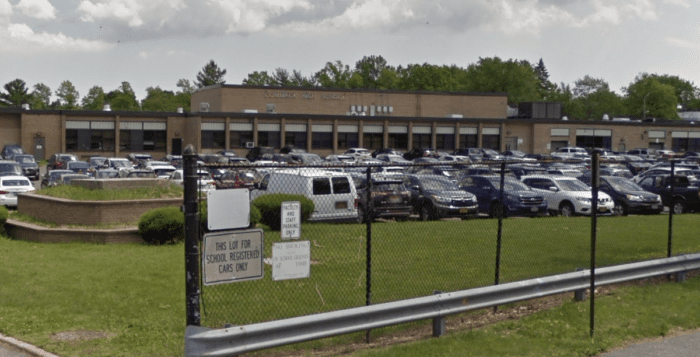


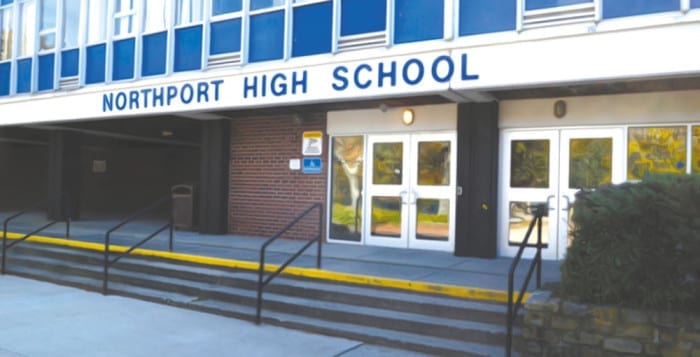
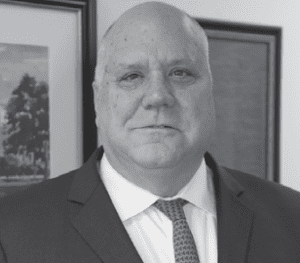

 “Selling the buildings offers a one-time lump sum, whereas leasing buildings and having those options available to us gives us long-term income,” Cascio said. She also added that if enrollment increased in the coming years, the district could use those buildings for schooling once again.
“Selling the buildings offers a one-time lump sum, whereas leasing buildings and having those options available to us gives us long-term income,” Cascio said. She also added that if enrollment increased in the coming years, the district could use those buildings for schooling once again.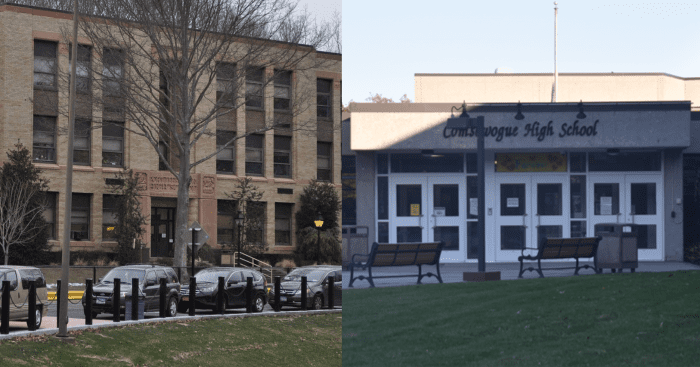

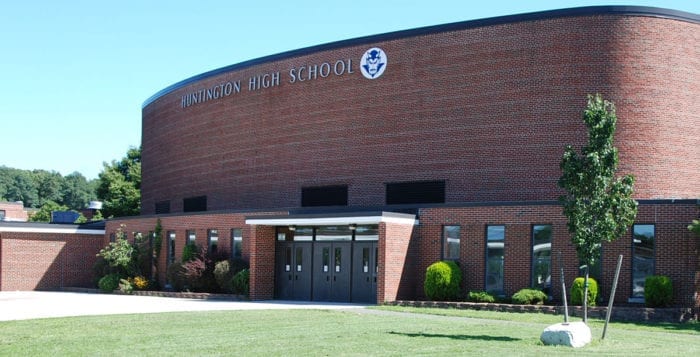

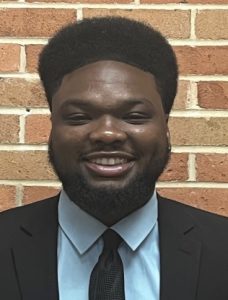
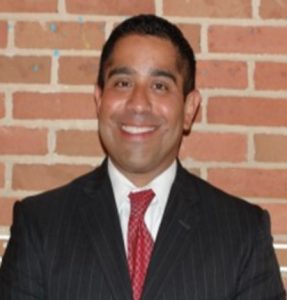
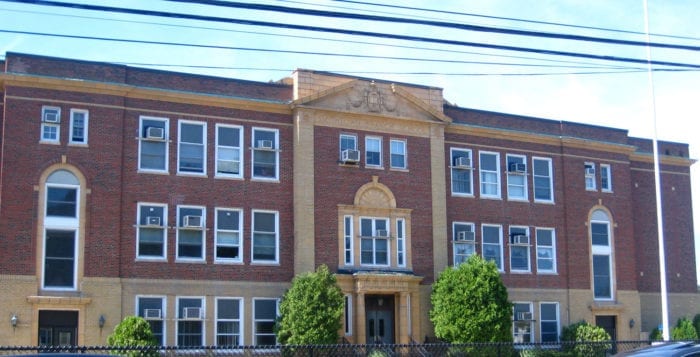
 Kevin Craine
Kevin Craine Nicholas De Bello
Nicholas De Bello Matthew Gribbin
Matthew Gribbin Elena Guttieri
Elena Guttieri Vlad Pean
Vlad Pean John Savoretti
John Savoretti




